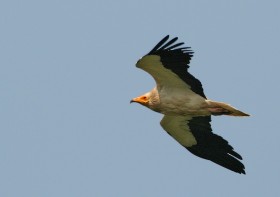Tags
birds, Birds of prey, conservation, environment, nature, persecution, photography, Vultures, wildlife crime
In the last few years we have increasingly come to realise just how much the migrant birds of the Eastern Mediterranean are under intense pressure. Every year, hundreds of millions of birds make the twice yearly trip between Europe and Africa. Unlike birds that stick to one area for the whole of their lives, the vast movements of migrants mean they encounter many more dangers as they go about their usual year. Not only do most of these migrants have to to cross the Sahara and the Mediterranean Sea each spring and autumn and deal with all kinds of weather conditions, humans also are responsible for incredible hazards they must overcome. A staggering number of birds do not make it.
Huge numbers are being slaughtered as they make their journeys. Millions are shot each year en route by people who consider killing a sport. Vast numbers of birds are caught in nets in northern Africa, the Middle East and Southern Europe – it is estimated that the length of the nets laid out each spring and autumn to catch desperately tired migrants totals over 700 km in Egypt alone!!! [1] Then there are overhead power cables that birds fly into, together with an increasing number of wind farms that large birds are not evolutionarily adapted to avoiding.
It’s a wonder any birds make it! Sadly fewer and fewer do.
 For those birds that do manage to successfully cross into Europe, even when they
For those birds that do manage to successfully cross into Europe, even when they  arrive at their breeding grounds the dangers are still there. Take Lazarus, an Egyptian Vulture nursed back to health from poisoning and fitted with a satellite transmitter. He left Greece in 2012, spent the winter in Africa and headed home in 2013. His journey took him over Egypt, Israel, war-torn Syria and Turkey, but two days after crossing the Greek border, only 200km from home, he swallowed poisoned bait and died.
arrive at their breeding grounds the dangers are still there. Take Lazarus, an Egyptian Vulture nursed back to health from poisoning and fitted with a satellite transmitter. He left Greece in 2012, spent the winter in Africa and headed home in 2013. His journey took him over Egypt, Israel, war-torn Syria and Turkey, but two days after crossing the Greek border, only 200km from home, he swallowed poisoned bait and died.
Now all this makes me angry. Really bloody angry.
But what can we do? Well, if it makes you angry perhaps you would consider this. A fundraising appeal has been made by Birdwing (a conservation organisation set up by my wife and me several years ago – see birdwing.eu) to raise money to help prevent the extinction of Egyptian Vultures from Greece. 
As part of an ongoing project anti-poison sniffer dogs are working in the breeding territories. They sniff out poison baits before they can do their killing.
Here’s the link.
It is vital work and every small donation can have a massive impact on the future of this species in Greece. It’s a chance to make a difference. Will you help?

